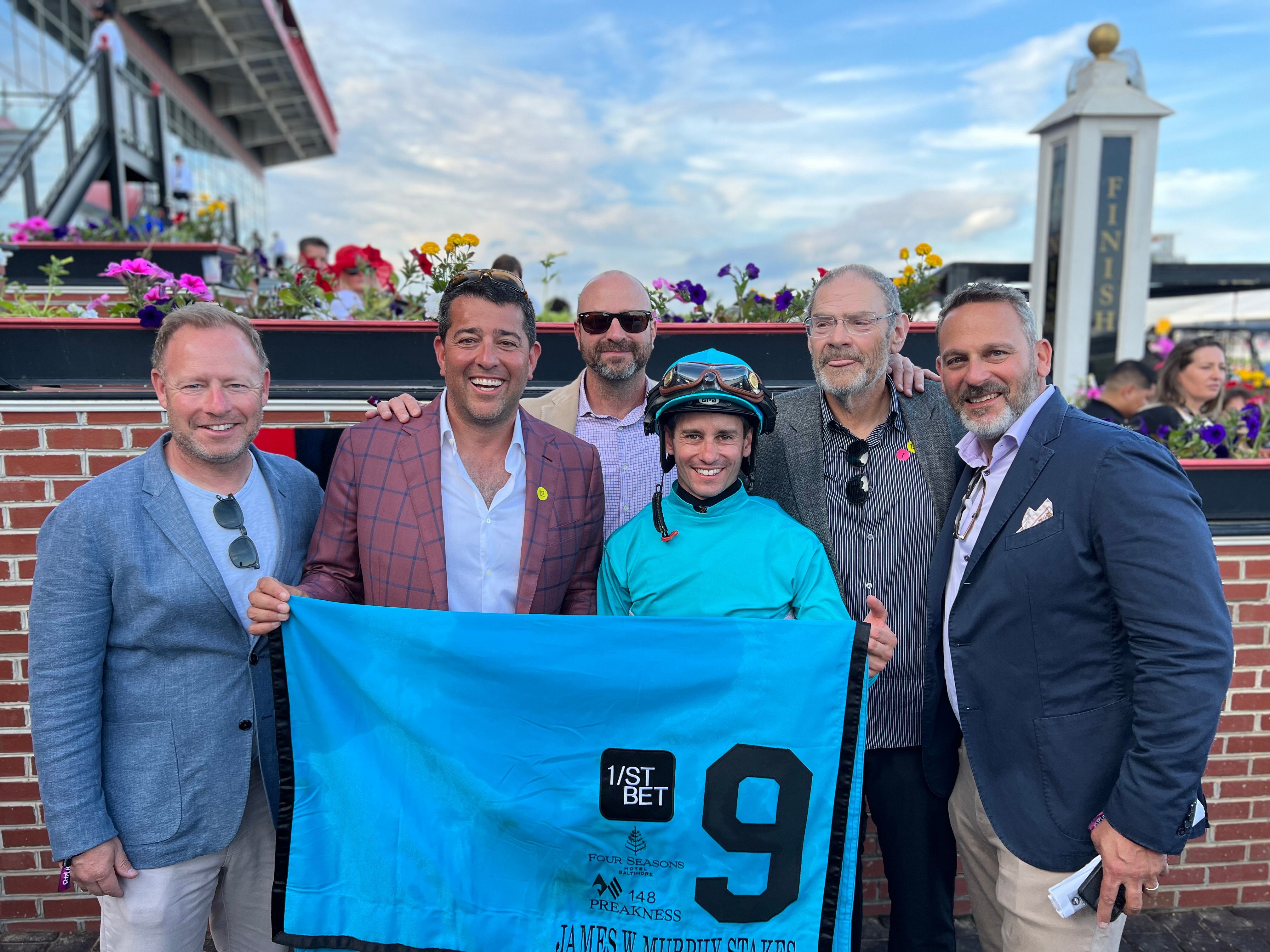Thoroughbred Investor Sol Kumin Shares His Secrets To Horseracing Success
Ahead of the Belmont Stakes, the Triple Crown-winning owner of Madaket Stables shares three rules for horse racing success.

Sol Kumin’s Madaket Stables has enjoyed nearly unrivaled success in only its first decade of existence, winning this year’s celebrity-studded Pegasus World Cup with his horse National Treasure, as well as past Kentucky Derbies and even the Triple Crown.
That Triple Crown materialized at the Belmont Stakes exactly six years ago. As we prep for this weekend’s big-ticket action, the Madaket Stables’ co-owner remembers that landmark 2018 race, illuminates the ledger to racing’s breathtaking risks and rewards, and shares three secrets to his success.
“I remember looking around at all the people when the horse was going to the gate—120,000 in the stands—and I’m like, ‘Man, I got all my friends and family here, all my partners. They’re all going nuts!’”
Kumin wistfully recalls sitting in the stands for that breakthrough race: when the legendary Justify, of which he’s a part owner, became only the second horse in almost half a century to claim the absurdly elusive Triple Crown since Affirmed’s 1978 win (American Pharaoh in 2015 being the other).
“It had that same energy I had before I played the Final Four lacrosse game in college—nothing else has made me nervous like that in a long time,” Kumin says, referencing his time as a successful Johns Hopkins Division I athlete.
“Then, all of a sudden, the horse is winning. And I remember when it was about 15 jumps from the line, I was like, ‘Holy shit, this horse is going to win!

“I got choked up. I was hugging my wife, my kids and my parents. And that’s the best part—the racing has been a really, really good thing for my dad. He’s 82, and it’s given him a new lease on life. It was just an awesome day.”
Kumin’s introduction into Thoroughbred racing began on a whim when he and three friends pooled some cash, tapped trainer Chad Brown to select three horses and founded Madaket Stables. The nascent racing endeavor experienced uncanny luck right out of the starting gate: Lady Eli, named after Kumin’s wife, won her first race at Saratoga, and all three of three of their horses went on to race the Breeders Cup their first year.
“I didn’t even know what the Breeders Cup was, and then Lady Eli won that too,” he recalls excitedly. “We ended up going to Nobu Malibu with 80 people and ripping up all night; it was just one of those great days that we’ll never forget.”
Inspired by their early success, and serendipitously between jobs in asset management at the time, Kumin dove deep into data mining, analyzing the numbers to discern exactly what variables he and his partners should look for in their horses.
Call it dumb luck or applied research, the success Madaket Stables experienced in their first decade of business is nothing short of stunning: winning 92 Grade One races, 12 Breeders Cups, the Preakness three times, the Kentucky Derby twice and even that unforgettable Triple Crown in 2018.
For investors, the temptation is clear: The sport holds great risk, but also great rewards. When a horse normally costs between $100,000 to $200,000 to purchase, winning a marquee race can be a boon. For instance, National Treasure’s Pegasus World Cup victory earned it about $1.8 million (60 percent of the $3 million purse) in just a single race.
Just imagine the Saudi Cup’s $20 million purse, won by Señor Buscador this year.
While a massive haul, most casual horse racing fans would be shocked to learn these huge purse payouts barely scratch the surface of what winning horses can earn their owners.
“Where the real money comes in,” Kumin reveals, “is for a boy doing a stallion deal, or selling a girl as a mom.”
These “breeding rights” are the real motherload. Consider two horses of which Madaket Stables were part owners of: Monomoy Girl and Authentic. As a young filly Monomoy Girl was purchased for $100,000, and earned over $4.8 million in her career.

Already a superlative return on investment, even when factoring in an annual upkeep of about $60,000 per horse. But with those superb genetics, her breeding rights were sold for a staggering $9,500,000—one of the highest pricetags ever notched for a female horse.
But those returns pale in comparison to stallions, or male horses. Sure, Authentic cost $350,000 and earned $7.2 million in his career. An absurdly healthy return by anyone’s standards. But when the winner of the 2020 Kentucky Derby and Breeders’ Cup Classic—where he set the track record—sold his breeding rights, he netted his owners a $35-million windfall.
Then there’s the aforementioned Justify: while the world class stallion initially sold for $60 million, after winning the Triple Crown a $15 million kicker pushed the total deal to a record-shattering $75 million.
The reason for this gender disparity being that males can “cover,” or breed, 200-plus mares a year, while mares can only bare one offspring per year. So while 99 percent of males have very little value, the top 1 percent are worth a fortune, as they can charge upwards of $250,000 per mating.
“It’s kind of like venture capital,” Kumin explains of the investment philosophy. “We’ll buy 30 or 40 males a year, trying to find one or two that pays for all of them. Now for females it’s actually the opposite: Almost 100% of females are worth something when they’re done, but they can never be worth what the males are worth because the males can breed for 15 to 20 years.”
“All of a sudden, the horse is winning, and I was like, ‘Holy shit, he’s going to win!’”
Needless to say, the investment has thus far paid off handsomely for Madaket Stables. And while only in the sport for 10 years, it’s clear Madaket Stables’ success record surpasses more than mere kismet. When asked for three lessons he’d pass on to a younger self, Kumin shared this sage advice:
“One: Set your expectations that winning one out of four times is excellent. If you’re winning at 25 percent, you’re beating the game. There aren’t very many things in life where you lose three out of four times and you’re happy.

“Two: Spread out your risk. I’d rather own a third of a hundred horses, or say half of 50, than all of 33. Critical to that is partnering with good people. The most fun part is now I’ve got 20 new friends that have all been successful in lots of different businesses from across industries.
“Three: The last thing is find someone to help you manage the sport that you can trust. You need somebody that’s spending a hundred percent of their time making sure that you’re not getting ripped off. That’s not always the easiest thing because the sport is a little bit unregulated.”
The 2024 Belmont Stakes takes place this Saturday at 6:30 p.m. EST.
Follow Deputy Editor Nicolas Stecher on Instagram at @nickstecher and @boozeoftheday.
This article originally appeared in the May/June 2024 issue of Maxim magazine.
